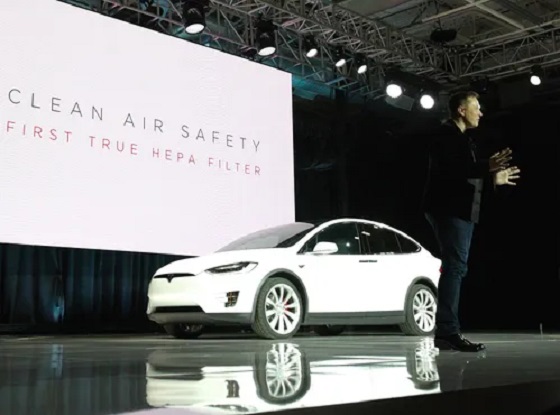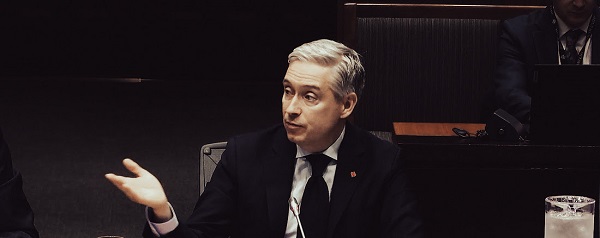Automotive
Tesla stock soars for fourth straight week on Musk Play plan, board shake-up

 MxM News
MxM News
Quick Hit:
Tesla shares surged more than 16% this week, notching a fourth consecutive week of gains and cutting into steep year-to-date losses. The rally is fueled by news of a potential new pay package for Elon Musk and the strategic addition of Jack Hartung, Chipotle’s outgoing president, to Tesla’s board. These developments come amid rising scrutiny over the board’s governance and compensation decisions, especially concerning Musk’s controversial $56 billion pay package from 2018.
Key Details:
- Tesla stock has gained over 16% this week and is now down just 13% for the year, recovering from a 40% loss earlier in 2025.
- Jack Hartung, Chipotle’s president, will join Tesla’s board on June 1, bringing seasoned business leadership.
- A special Tesla board committee is evaluating a new compensation plan for Musk after legal challenges to his previous $56 billion package.
Diving Deeper:
Tesla’s stock (TSLA) closed the week strong at $349.98, climbing 2.09% on Friday alone and marking a fourth straight week of gains. This momentum has helped the electric vehicle maker erase much of its earlier 2025 losses, which had topped 40% at one point. Now down just 13% year-to-date, the turnaround comes as investors digest two pivotal developments that could shape Tesla’s future leadership and direction.
The most immediate catalyst: Tesla’s announcement that Jack Hartung, the president of Chipotle Mexican Grill, will join its board of directors beginning June 1. Hartung will also serve on the audit committee, a significant appointment given Tesla’s board has been under fire for lack of independence and weak oversight of CEO Elon Musk. Hartung brings executive experience from not only Chipotle but also board roles at Portillo’s, the Honest Company, and ZocDoc—credentials that could help restore confidence in Tesla’s boardroom governance.
Hartung’s addition follows the bombshell report from the Financial Times earlier this week that Tesla’s board has formed a special committee to explore a new pay package for Elon Musk. The committee’s task is to find “alternative ways” to reward Musk for past work in case Tesla fails to reinstate the original 2018 compensation deal, which is now under appeal with the Delaware Supreme Court. That deal—valued at $56 billion—has drawn fire from large shareholders, prompting broader questions about Musk’s influence over Tesla and whether the board has effectively served as a rubber stamp for his ambitions.
Critics have warned that Musk’s threat to redirect his artificial intelligence efforts away from Tesla unless he is granted additional stock options represents an outsized concentration of power in the hands of one individual. While Musk continues to be the face of the company’s innovation and success, these governance concerns have given activist investors and institutional shareholders new ammunition.
Tesla board chair Robyn Denholm has also come under scrutiny, particularly after Wall Street Journal reporting suggested the board was considering replacing Musk or had urged him to spend more time at the company. Denholm has publicly denied those claims, but her own record—cashing out more than half a billion dollars in Tesla stock since joining the board in 2014—hasn’t helped stem criticism. In fact, the board recently had to settle a lawsuit over excessive director compensation, refunding millions of dollars to shareholders.
Despite these governance challenges, the market has responded positively to the board’s recent moves, seeing them as steps toward restoring stability and investor confidence. The addition of Hartung and the new pay committee could signal a willingness to address long-standing concerns about independence and oversight, even as Musk remains firmly at the center of Tesla’s orbit.
For now, investors appear to be betting that a more disciplined board—paired with a still-charismatic and high-impact CEO—could be a recipe for renewed growth and focus.
‘Elon Musk introducing the Model X” by Steve Jurvetson licensed under (CC BY-SA 2.0)
Automotive
Governments continue to support irrational ‘electric vehicle’ policies

From the Fraser Institute
Another day, another electric vehicle (EV) fantasy failure. The Quebec government is “pulling the plug” on its relationship with the Northvolt EV battery company (which is now bankrupt), and will try to recoup some of its $270 million loss on the project. Quebec’s “investment” was in support of a planned $7 billion “megaproject” battery manufacturing facility on Montreal’s South Shore. (As an aside, what normal people would call gambling with taxpayer money, governments call “investments.” But that’s another story.)
Anyway, for those who have not followed this latest EV-burn out, back in September 2023, the Legault government announced plans to “invest” $510 million in the project, which was to be located in Saint-Basile-le-Grand and McMasterville. The government subsequently granted Northvolt a $240 million loan guarantee to buy the land for the plant, then injected another $270 million directly into Northvolt. According to the Financial Post, “Quebec has lost $270 million on its equity investment… but still had a senior secured loan tied to the land acquired to build the plant, which totals nearly $260 million with interest and fees.” In other words, Quebec taxpayers lost big.
But Northvolt is just the latest in a litany of failure by Canadian governments and their dreams of an EV future free of dreaded fossil fuels. I know, politicians say that it’s a battle against climate change, but that’s silly. Canada is such a small emitter of greenhouse gases that nothing it could do, including shutting down the entire national economy, would significantly alter the trajectory of the climate. Anything Canada might achieve would be cancelled out by economic growth in China in a matter of weeks.
So back to the litany of failed or failing EV-dream projects. To date (from about 2020) it goes like this: Ford (2024), Umicore battery (2024), Honda (2025),General Motors CAMI (2025), Lion Electric (2025), Northvolt (2025). And this does not count projects still limping along after major setbacks such as Stellantis and Volkswagen.
One has to wonder how many tombstones of dead EV fantasy projects will be needed before Canada’s climate-obsessed governments get a clue: people are not playing. Car buyers are not snapping up these vehicles as government predicted; the technologies and manufacturing ability are not showing up as government predicted; declining cost curves are not showing up as government predicted; taxpayer-subsidized projects keep dying; the U.S. market for Canada’s EV tech that government predicted has been Trumped out of existence (e.g. the Trump administration has scrapped EV mandates and federal subsidies for EV purchases); and government is taking the money for all these failed predictions from Canadian workers who can’t afford EVs. It really is a policy travesty.
And yet, like a bad dream, Canada’s governments (including the Carney government) are still backing an irrational policy to force EVs into the marketplace. For example, Ottawa stills mandates that all new light-duty vehicle sales be EVs by 2035. This despite Canadian automakers earnest pleas for the government to scrap the mandate.
Canada’s EV policy is quickly coming to resemble something out of dysfunctional-heroic fiction. We are the Don Quixotes, tilting futilely at EV windmills, and Captain Ahabs, trying to slay the dreaded white whale of fossil-fuelled transportation with our EV harpoons. Really, isn’t it time governments took a look at reality and cut their losses? Canada’s taxpayers would surely appreciate the break.
Automotive
Big Auto Wants Your Data. Trump and Congress Aren’t Having It.


From the Daily Caller News Foundation
Congress is not going to allow Big Auto to sideline consumer privacy and safety while getting subsidized massively by the federal government.
That is because, in late September, by an overwhelming vote of 50 to 1, Chairman Brett Guthrie’s (R-KY) House Energy & Commerce Committee joined the Senate Commerce, Science, and Transportation Committee in passing the AM Radio for Every Vehicle Act.
This legislation is in response to some automakers removing AM radios from new model vehicles despite pleas from America’s public safety community not to do so.
Dear Readers:
As a nonprofit, we are dependent on the generosity of our readers.
Please consider making a small donation of any amount here.
Thank you!
“They’d rather force consumers to use their infotainment devices — which collect and sell their third-party data — than protect American lives,” Corey Lewandowski, President Trump’s 2016 campaign manager and senior adviser to his 2020 and 2024 campaigns, stated.
The entirety of America’s public safety community spanning the federal, state, and local levels, insists AM radio remaining in cars is critical for protecting the nation’s emergency alerting systems. These systems rely heavily upon AM radio, the only communication method that has stayed reliably accessible during many disasters such as the Sept.11 terrorist attack and major disasters like Hurricanes Katrina, Sandy, and most recently, Helene.
Brendan Carr, the current chairman of President Trump’s FCC, nominated by President Trump, has also endorsed the AM Radio for Every Vehicle Act. In a statement, Carr said that “millions of Americans depend on the value of AM radio and the local news that AM broadcasters offer in communities across the country.” He also recounted hearing firsthand stories of Hurricane Helene victims who “could only access lifesaving information in the days following the storm by tuning into their AM radios.”
AM radio also serves another purpose that the elites in Silicon Valley and Detroit often forget: it keeps rural and working-class America connected. Millions of people outside the big cities rely on AM for local news, farm reports, weather alerts, and even community events. For many small towns, AM stations are a lifeline—far more reliable than expensive streaming services or spotty cell coverage. Pulling it out of cars is yet another way of telling Middle America: “you don’t matter.”
Of course, no good idea in Washington is safe from special interests.
Despite the broad support within Congress, the administration, and throughout the public safety and first responder communities, the bill has faced a full-court press by the musicFIRST Coalition — a group backed by the Recording Industry of America — to tank the legislation unless it is tied to unrelated music royalty reform legislation. That’s cronyism politics at its worst—holding public safety hostage to squeeze out another payday.
However, now that the AM Radio for Every Vehicle Act has passed both committees by overwhelming margins, the only stop left for the legislation is the House and Senate Floor — meaning Speaker Mike Johnson (R-LA) and House Majority Leader John Thune (R-SD) must call it up for a roll call vote.
At the heart of this fight is more than just whether a radio dial stays in your dashboard. It’s about whether Americans can trust that their safety won’t be sacrificed for corporate profit.
It’s also about data privacy. Automakers and Big Tech are eager to funnel drivers into infotainment systems that monitor every move, harvest personal information, and sell it to the highest bidder. AM radio doesn’t spy on you. It doesn’t crash when the grid goes down. It doesn’t put profit ahead of people. It just works.
For the sake of both public safety and personal freedom, Congress should make sure it stays that way.
Ken Blackwell (@KenBlackwell) is an adviser to the Family Research Council and a chair at the America First Policy Institute. He is a former Mayor of Cincinnati, Ohio, Ohio Treasurer and Secretary of State, and U.S. Ambassador to the United Nations Human Rights Commission. He is also a former member of the Trump transition team.
-

 Alberta2 days ago
Alberta2 days agoFact, fiction, and the pipeline that’s paying Canada’s rent
-

 Business1 day ago
Business1 day agoTrump Warns Beijing Of ‘Countermeasures’ As China Tightens Grip On Critical Resources
-

 International1 day ago
International1 day agoTrump gets an honourable mention: Nobel winner dedicates peace prize to Trump
-

 Business19 hours ago
Business19 hours agoCarney government plans to muddy the fiscal waters in upcoming budget
-

 International2 days ago
International2 days agoTrump-brokered Gaza peace agreement enters first phase
-

 Alberta2 days ago
Alberta2 days agoAlberta Is Where Canadians Go When They Want To Build A Better Life
-

 Crime1 day ago
Crime1 day agoCanada’s safety minister says he has not met with any members of damaged or destroyed churches
-

 COVID-191 day ago
COVID-191 day agoTamara Lich says she has no ‘remorse,’ no reason to apologize for leading Freedom Convoy




